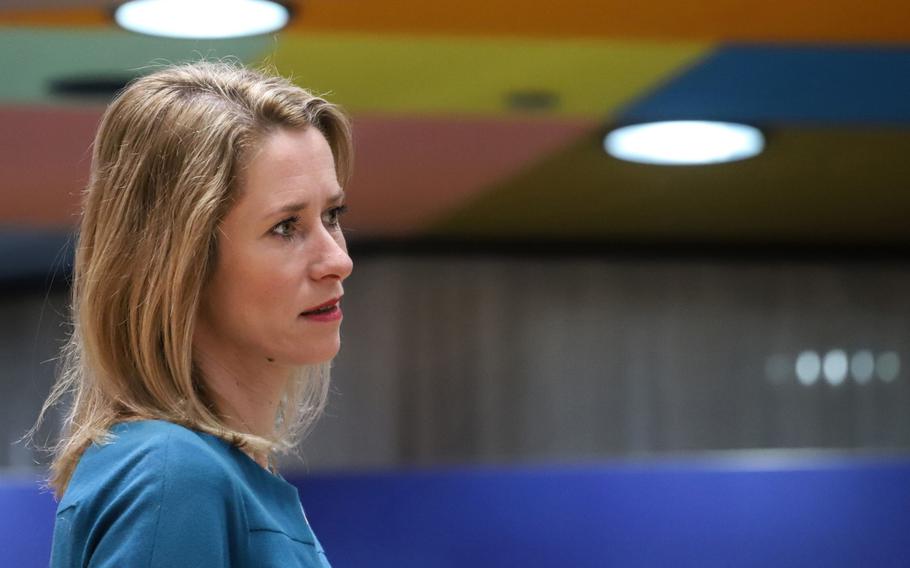
Kaja Kallas, Estonia’s prime minister, at a European Union leaders summit in Brussels on March 25, 2022. (Valeria Mongelli/Bloomberg)
Estonian Prime Minister Kaja Kallas ended her 16-month governing coalition after weeks of political squabbling, saying she’ll seek to form a new alliance as the Baltic nation confronts its biggest security threat in decades.
“There needs to be a functioning government that has shared values,” Kallas, the 44-year-old leader whose popularity has soared with her hard line on Russian President Vladimir Putin, said in an interview in Tallinn on Friday.
The moves comes hours after the Estonian president, who holds a largely ceremonial role, urged the ruling party members to drop their differences or find a new alignment. The standoff had hobbled the ability of the nation of 1.3 million, which shares a border with Russia, to confront the threat posed by the invasion of Ukraine, he said.
Kallas responded by firing her cabinet members belonging to the Centre Party under former Premier Juri Ratas, who had unilaterally sought legislation Kallas rejected. Kallas said she’ll instead seek to form a majority with Estonia’s Social Democrats and the nationalist Pro Patria party.
While the Social Democrats immediately expressed interest, a spokesman for Pro Patria said the party was open to all options. The conservative faction could also join a majority with Centre and the far-right EKRE party, which could return Ratas to the top job. Pro Patria leaders will meet on Monday to discuss the way forward.
Ratas called Kallas’s decision “incomprehensible” in a statement on Facebook, and signaled she should resign -- a course the premier said she wouldn’t take.
Kallas had struggled to end the crisis. During a meeting with European Union leaders this week, she pledged to pull the plug on the coalition if Ratas’s party pushed through legislation without her consent. That draft bill, on children’s benefits, later cleared a key hurdle -- while Ratas’s faction rejected a separate bill, mandating Estonian in kindergartens, that had already been agreed on with Kallas’s Reform Party.
The legislative jousting was too much for Kallas, who said the Centre Party, with whom she’s governed since January 2021, had become unreliable.
“If I don’t know how many votes I actually have in parliament or if the decisions that we’ve made in government are somehow undermined - you can’t govern like that in a security situation,” Kallas said in the interview.
The political maneuvering would put off any early election, with the next contest scheduled for 2023 at the latest. But if a vote were held in the near term, polls show Kallas’s popularity would lift Reform. A June 1 Norstat survey showed 34.7% of voters backing Reform, well ahead of Centre at 16.3%. EKRE would come in second with 19.4%.